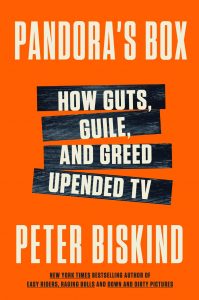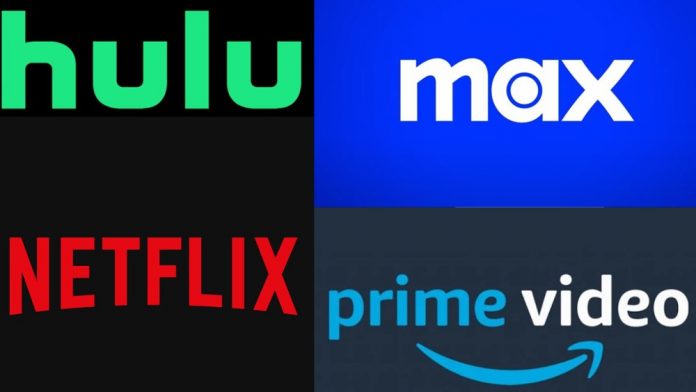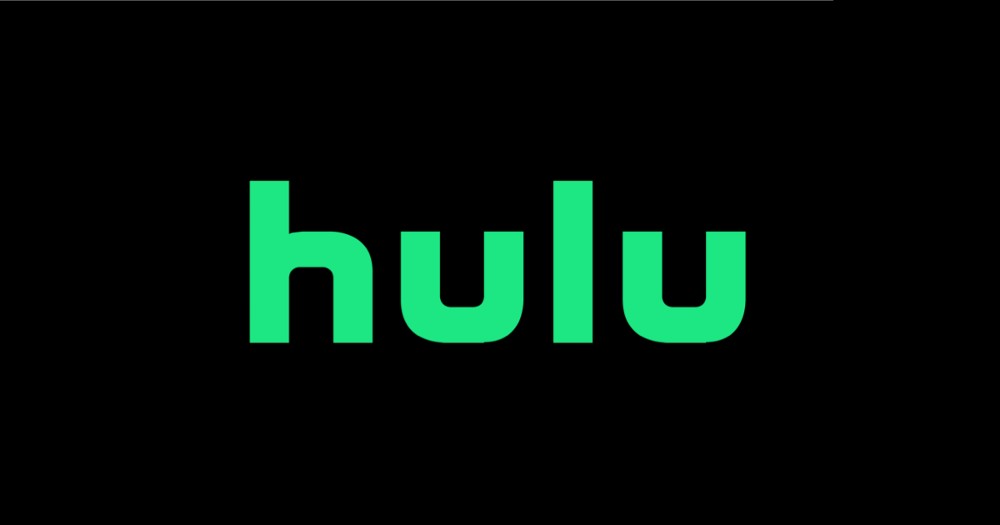Peter Biskind is one of the most celebrated entertainment writers of the past 40 years. He was the editor of Premiere Magazine and has written several books including Seeing is Believing, Easy Riders Raging Bulls, Down and Dirty Pictures, Star, and The Sky is Falling. Biskind has a knack for cutting through the immense bullshit of the industry and laying out, often in layman’s terms, what happens in these studios for better or for worse.
His latest book, Pandora’s Box: How Guts Guile and Greed Upended TV, covers television and the massive changes from the broadcast era to cable TV (HBO, FX, AMC), to the modern era of streaming which has completely eviscerated everything before it but is imploding before our very eyes, leading analysts puzzled as to what the future holds. A story that spans many years, from the inception of HBO throughout the decades, as they became the premier outlet for prestige programming, to their “rivals” FX, AMC, and Showtime on cable to the streaming era. The streamers, led by Netflix, completely deconstructed the business model of Hollywood and it has not been the same since.
In the closing pages of the book, Biskind lays out the root causes of the dismay. The streaming gold rush put insane amounts of money into a few hands that flooded the market with hundreds of new shows and films that no one wanted. The core ecosystem was eroded and now there is nothing to replace the void. The modern era also was dominated by superhero films at the box office that created a new era of no new bona fide movie stars that could open a movie like Tom Cruise. There is no middle anymore, and unlike the studios and networks of the past, the streamers are very similar content-wise leaving fewer real choices to beleaguered audiences looking for something new.
Biskind’s well-researched book explains how we got here and offers a few suggestions on how we move forward.

Above the Line: The book begins with the history of HBO. The shadow of HBO is all over the modern era, they pioneered the form of “prestige TV.” Do you think prestige TV hurt indie films’ box office?
Peter Biskind: Eventually, I stopped going to the movies, because it became a monoculture of superheroes. Scorsese famously compared them to theme parks, and movies certainly devolved in a direction that was quite different from the most recent golden age of movies, which was the nineties, the indie era.
ATL: The modern era has two phenomenons: Disney and the blockbuster on steroids (Marvel, Pixar, Star Wars) and Netflix and the rise of streaming. How does anything new break out of that, the way that new films and movements did in the past?
Biskind: You can still find really good shows on streaming, and I’m thinking of one of my favorites, Slow Horses on Apple of all places, which is a terrific show. The main difference now is there’s no movement like in the nineties. Maybe the movies weren’t as good as the movies of the seventies, but there was a movement behind it in Miramax, I hate to say, [which] was the foundation of it. And they put so much money into it, and they had a vision, and that’s not true now. I think the vision of the streamers is to compete for the greatest number of viewers, period. It’s all about money.
ATL: What are your thoughts on the reporting of data on streaming viewing?
Biskind: I think one of the interesting things about it is the changes that Netflix has made, since it turned out that streaming appears not to be as profitable as people thought it was going to be. The changes they’ve instituted, namely ad-supported tiers ending binging, they’ve reversed themselves on all the things that made Netflix, Netflix. So by raising the prices on the ad-free tier to almost double what it is for an ad-supported tier on Netflix, it’s just opening up the service to sponsors and advertisers, which as we know, had an extremely adverse effect on programming on the networks that Netflix was trying to start in opposition to. Not only that, but they’ve started hiring from the networks and hiring from the studios.

ATL: Do you think the streamers are becoming more like network and cable TV?
Biskind: When Tom Fontana was hired to do Oz for HBO, there was a question about whether he was too much like the networks, because he’d written for St. Elsewhere and a couple of other network shows, all the cable and then cable and premium cable, basic cable, and then streaming were all cast themselves as in oppositions to the networks and now that’s not true anymore. And you can see Only Murders in the Building just went from Hulu to ABC. There’s now a kind of two-lane highway between the streamers and the networks, and the differences between them are breaking down
ATL: Do you see a return to ancillaries?
Biskind: I don’t know, because I got rid of my DVD players, and I have to go out and buy all this old equipment again. I don’t know. I’m associated with a single-screen theater that was built in 1926 in the Hudson Valley, we find it very hard going. It has 500 seats and it’s situated in a relatively small town, and then you find studios like Disney demanding three weeks for their blockbusters. So we show a film for one week, and it does fairly well. Even a superhero movie or Christmas blockbuster, the second week, half as much, and the third week, nobody goes, and you can’t sustain a small theater or repertory theater. I mean, you can go repertory. We try to. People still enjoy those big blockbusters, so we try to do both, but it’s really hard to juggle the two and make a go of it.
ATL: Do you think producers are underused or undervalued in the modern setup? It seems like a generation ago, they were considered more important (especially in the indie world).
Biskind: I’ve heard that before. I just don’t know because I didn’t interview that many producers. I have mixed feelings about it, having studied the seventies when directors were the auteurs, were all-powerful. In the eighties, producers started becoming more aggressive like Don [Simpson] and Jerry [Bruckheimer], and I always felt like the eighties was a dead zone, because I thought that those producers ruined movies. I mean, it’s an interesting idea now to come back, to come full circle and feel that.
ATL: We’ve already talked about Netflix… Thoughts on the other streamers?
Biskind: The studios ignored the fact that everything’s been swallowed up. One of the big trends is consolidation. So the big tech companies like Apple and Amazon come in and they buy studios. Amazon buys MGM, and they buy streamers. I think there was at least a general sense that if you didn’t have a streamer, you were out of business, because streaming was the future, and streaming was going to make a lot of money and all that turned out to be not entirely true.
ATL: Thoughts on Hulu – it’s lost a lot of money.
Biskind: When you think that Disney, which is the major primary owner of Hulu, is in trouble and talking about selling its networks, and so forth, or selling itself entirely to Apple. It’s shocking because Disney is a huge studio, the biggest studio in the world.
ATL: Which streamer do you think will be out of the game first?
Biskind: Well, anything’s possible. I mean, you pick the one with the most money, and it certainly has the money to survive from now until we’re all consumed by nuclear war: Apple. Some of its shows are doing fairly well, we think.
ATL: Looking at the so-called streaming ratings like Nielsen, Antenna, and Parrot Media – all of their lists are different so we don’t know what’s doing well.
Biskind: I know and talk about secrecy. Apple is the most secretive company there is – they make Netflix look transparent.
ATL: We don’t even know what their subscriber numbers are. I think the rumor is that it’s like 20 million, and they’re mostly freebies. If you buy an Apple product they give you a year.
Biskind: Yeah, I mean, that was the original intent to give it free to anybody who bought an iPhone. That’s one of the reasons why the content was so bland, because they didn’t want sex violence and controversy going to kids buying iPhones.
ATL: What do you think about their wide releases of the formerly direct-to-streaming films Napoleon or Killers of the Flower Moon?
Biskind: I was impressed by the fact that Apple has given Killers of the Flower Moon a theatrical release, which was completely contrary to the way the traditional theatrical exhibition was treated in the early days of streaming when you had things released simultaneously or even first on streaming. It is not exactly a blockbuster, but Napoleon should have been. It’d be a shame if theatrical became solely the province of blockbusters and event movies, which absolutely could happen. I think this is a one-off, because it’s a serious movie and it’s three and a half hours long, and Scorsese being Scorsese, they let him do what he wants, or they had no power to stop him from doing what he wants.
ATL: This brings back the producer question, or rather if there’s a studio head overseeing these directors?
Biskind: It seems to me a commentary on the naïveté of the people who are running some of these streamers, they see the name “Scorsese,” and they fall all over themselves. And somebody, I interviewed Michelle and Robert King, who did The Good Wife on CBS for many years, and many other shows, and they’ve written for all three streaming networks and cable. They were talking about how streaming facilitates programs – the framework is so loose, and there are no ads and everything that made streaming good, also made streaming invites excess in terms of invites creators to excess, because there’s no really no oversight. That was one good thing about Miramax. They had no hesitation in terms of reigning in their directors, even the famous ones. Now, nobody will touch these directors, and streaming doesn’t give you a framework for doing it.
Pandora’s Box: How Guts Guile and Greed Upended TV was released on Nov. 7, 2023, and it’s available at all good book retailers, including Amazon.




